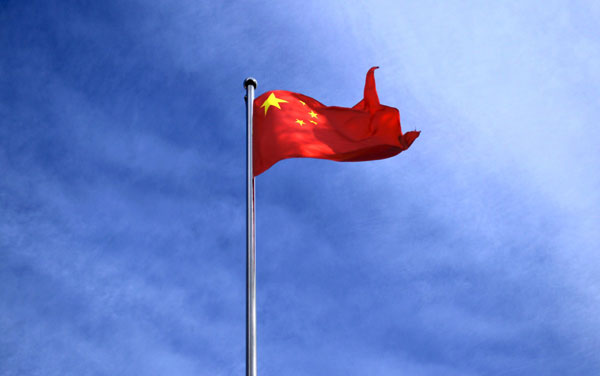Escalating anti-China sentiment fuels global tensions

[Chinese flag, Flutter, China image. Photo Credit to Pixabay]
Movements aimed at isolating the Chinese Communist Party and its affiliated businesses are rapidly gaining momentum, particularly in nations such as Korea where political turmoil continues to unfold.
On Tuesday, the Chinese Ambassador to the Republic of Korea Dai Bing, criticized the temptations of certain South Korean conservative supporters to encourage anti-China sentiment.
As Dai began his term in late 2024, this briefing was the first with local journalists at the Chinese Embassy in Seoul, however, marked the start by refuting the allegations of Chinese intervention in South Korea's elections.
Addressing the reactionary factions, he asserted, “I am well aware that these groups represent only a tiny minority in South Korea and do not reflect the broader society. However, their strong disruptive influence could significantly impact the development of China-South Korea relations.”
His remarks followed President Yoon Suk Yeol's statements regarding China during his impeachment trial. Yoon, currently impeached due to his brief imposition of martial law at the end of 2024, insisted that China's interference in South Korea’s domestic political affairs influenced his decision to impose emergency military rule.
Tensions between the two nations have greatly escalated, particularly over security conflicts, following South Korea’s recent restrictions on downloading China's new artificial intelligence application DeepSeek in government bureaus.
Dai characterized the recent movements as an attempt to politicize technology issues, cautioning that continued anti-China demonstrations will tarnish South Korea’s global reputation and deter Chinese tourists from visiting the country.
When questioned about the Chinese government’s requirement to submit personal information on Chinese firms, he responded: “The Chinese government places great emphasis on data privacy and security. China has never demanded that companies or individuals illegally collect or store data.”
Despite China’s detailed reassurances, bans on Deepseek continue to expand globally, leaving a question about the safety of China-affiliated platforms.
As of February 27th, more than seven nations including Italy, Taiwan, the United States, Australia, and others have implemented strict regulations on the installation of Deepseek.
Australia has outright prohibited access to Deepseek on all federal government devices, following advice from intelligence agencies about potential national security threats.
With one month after Donald Trump’s inauguration, nations recognizing the threat of China in future years are actively imposing tariffs on China, beginning with the United States.
On February 1st, Donald Trump signed an executive order to impose an additional 10% tariff on all imports from China, set to take effect on March 4.
Vietnam announced a temporary tariff of up to 27.83%, starting from February 21st, on hot-rolled steel products, emphasizing the necessity of this action to protect domestic industries from unfair competition.
Public protests and demonstrations are widely happening, addressing the risks of expanding China’s influence, human rights violations in the Tibet region, etc.
Approximately 4,000 protestors composed of Hongkongers and Taiwanese gathered in London on February 8th, strongly opposing China’s plan to construct a larger embassy near the Tower of London.
Amid the rising global anti-China sentiment, the winner of the ongoing tariff war and military demonstrations appears to determine the course of humanity's future.

- MinSeop (Mason) Kim / Grade 9
- St. Johnsbury Academy Jeju

![THE HERALD STUDENT REPORTERS [US]](/assets/images/logo_student_us.png)
![THE HERALD STUDENT REPORTERS [Canada]](/assets/images/logo_student_ca.png)
